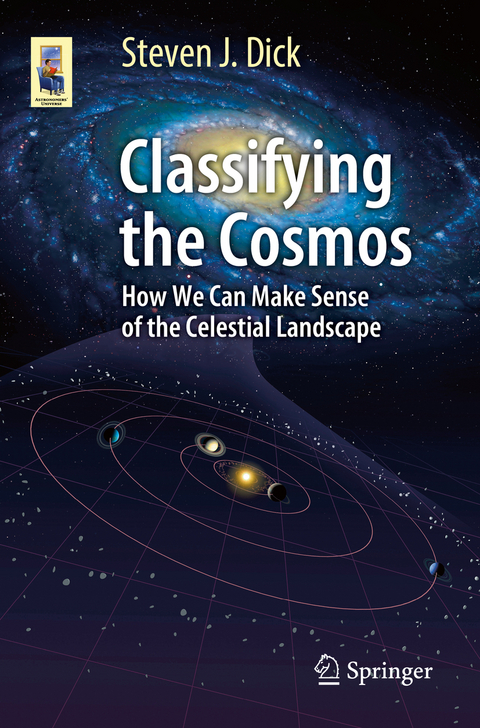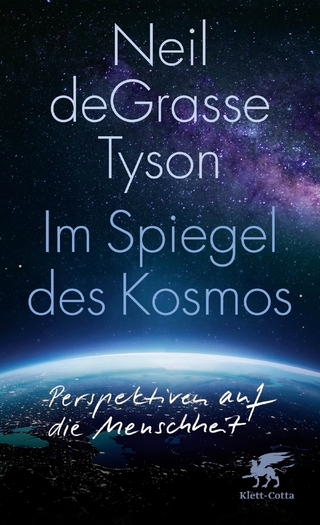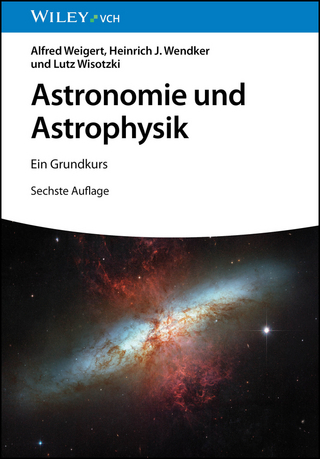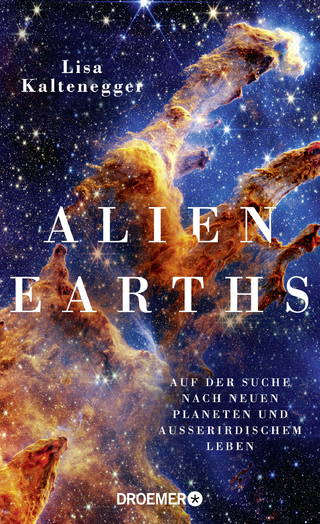
Classifying the Cosmos
Springer International Publishing (Verlag)
978-3-030-10379-8 (ISBN)
Astronomer and former NASA Chief Historian Steven J. Dick brings order to this menagerie by defining 82 classes of astronomical objects, which he places in a beginner-friendly system known as "Astronomy's Three Kingdoms." Rather than concentrating on technicalities, this system focuses on the history of each object, the nature of its discovery, and our current knowledge about it.
The ensuing book can therefore be read on at least two levels. On one level, it is an illustrated guide to various types of astronomical wonders. On another level, it is considerably more: the first comprehensive classification system to cover all celestial objects in a consistent manner.
Accompanying each spread are spectacular historical and modern images. The result is a pedagogical tour-de-force, whereby readers can easily master astronomy's three realms of planets, stars, and galaxies.
Steven J. Dick held the 2014 Baruch S. Blumberg NASA/Library of Congress Chair in Astrobiology at the Kluge Center of the Library of Congress. In 2013 he testified before Congress on the subject of astrobiology. He served as the Charles A. Lindbergh Chair in Aerospace History at the National Air and Space Museum from 2011-2012, and as the NASA Chief Historian and Director of the NASA History Office from 2003-2009. Prior to that, he worked as an astronomer and historian of science at the U.S. Naval Observatory in Washington, D.C. for 24 years, including three years on a mountaintop in New Zealand. He obtained his B.S. in astrophysics (1971), and MA and PhD (1977) in history and philosophy of science from Indiana University. Among his books are Plurality of Worlds: The Origins of the Extraterrestrial Life Debate from Democritus to Kant (Cambridge University Press, 1982) (translated into French), The Biological Universe: The Twentieth Century Extraterrestrial Life Debate and the Limits of Science (Cambridge University Press, 1996), and Life on Other Worlds (Cambridge University Press, 1998), the latter translated into Chinese, Italian, Czech, Greek and Polish. He has also authored (with James Strick) The Living Universe: NASA and the Development of Astrobiology (2004), and a comprehensive history of the U. S. Naval Observatory, Sky and Ocean Joined: The U. S. Naval Observatory, 1830-2000 (Cambridge University Press, 2003). The latter received the Pendleton Prize of the Society for History in the Federal Government. He is also editor of Many Worlds: The New Universe, Extraterrestrial Life and the Theological Implications (2000), and (with Keith Cowing) Risk and Exploration: Earth, Sea and Stars (NASA SP-2005-4701 (Washington, D.C., 2005), and numerous volumes in the NASA History series. His book Discovery and Classification in Astronomy: Controversy and Consensus was published by Cambridge University Press in 2013. He is editor of the The Impact of Discovering Life Beyond Earth, published by Cambridge University Press in November, 2015, and Historical Studies in the Societal Impact of Spaceflight (NASA, 2015). Dr. Dick's recent book, Astrobiology, Discovery and Societal Impact (Cambridge University Press, 2018) won the the 2019 PROSE award for Cosmology & Astronomy.
lt;p>Dedication.- Acknowledgements.- Abbreviations.- Introduction to Astronomy's Three Kingdoms.- Part 1: The Kingdom of the Planets.- Chapter 1: Family: Protoplanetary.- Chapter 2: Family: Planet.- Chapter 3: Family: Circumplanetary.- Chapter 4: Family: Subplanetary.- Chapter 5: Family: Interplanetary Medium.- Chapter 6: Family: Systems.- Part II: The Kingdom of the Stars.- Chapter 7: Family: Protostellar.- Chapter 8: Family: Star.- Chapter 9: Family: Circumstellar.- Chapter 10: Family: Substellar.- Chapter 11: Family: Interstellar Medium.- Chapter 12: Family: Systems.- Part III: The Kingdom of the Galaxies.- Chapter 13: Family: Protogalactic.- Chapter 14: Family: Galaxy.- Chapter 15: Family: Circumgalactic.- Chapter 16: Family: Subgalactic.- Chapter 17: Family: Intergalactic Medium.- Chapter 18: Family: Systems.- About the Author.- Index.
"In his new book Classifying the Cosmos: How We Can Make Sense of the Celestial Landscape, Dick undertakes the monumental task of designing a classification system for all of astronomy. He even goes a step further by incorporating existing subfield classification schemes. In each object entry, Dick expertly employs his background as NASA Chief Historian and his decades of experience as an astronomer at the US Naval Observatory to provide detailed historical context and rigorous scientific explanation." (Will Saunders, Astrobites, November 21, 2019)
"Astronomer and former NASA historian Steven Dick endeavors to bring some order to the cosmic menagerie as we know it today. The result is an important and revelatory work that can be used by researchers, educators, and enthusiasts alike. ... I found Classifying the Cosmos to be thoroughly researched and engaging. ... I would say that he has succeeded most admirably. I would also add that the book will be a handy reference for researchers and communicators of astronomy." (William H. Waller, Physics Today, Vol. 72 (11), November, 2019)
| Erscheinungsdatum | 05.04.2019 |
|---|---|
| Reihe/Serie | Astronomers' Universe |
| Zusatzinfo | L, 458 p. 123 illus., 108 illus. in color. |
| Verlagsort | Cham |
| Sprache | englisch |
| Maße | 155 x 235 mm |
| Gewicht | 771 g |
| Themenwelt | Sachbuch/Ratgeber ► Natur / Technik ► Weltraum / Astronomie |
| Naturwissenschaften ► Physik / Astronomie ► Astronomie / Astrophysik | |
| Schlagworte | astronomical discoveries • Astronomical objects • astronomy classification system • Astronomy history • astronomy observation tips • classification in astronomy |
| ISBN-10 | 3-030-10379-X / 303010379X |
| ISBN-13 | 978-3-030-10379-8 / 9783030103798 |
| Zustand | Neuware |
| Haben Sie eine Frage zum Produkt? |
aus dem Bereich


